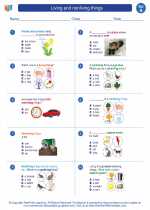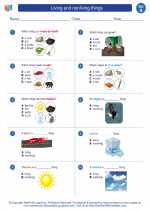Mutation Explanation
A mutation is a change in the DNA sequence of an organism. This change can occur due to various factors such as exposure to radiation, chemicals, or errors in the replication process. Mutations can happen in different parts of the DNA, including genes, promoters, or non-coding regions.
Types of Mutations
There are different types of mutations:
- Point Mutations: These involve a change in a single nucleotide, which can result in the substitution of one amino acid in a protein.
- Insertions and Deletions: These mutations involve the addition or removal of nucleotides, which can cause a shift in the reading frame during translation.
- Chromosomal Mutations: These mutations involve changes in the structure or number of chromosomes, such as inversions, translocations, or duplications.
Effects of Mutations
Mutations can have different effects on an organism:
- Neutral Mutations: Some mutations may have no significant effect on the organism's phenotype.
- Beneficial Mutations: In some cases, mutations can result in new traits that are advantageous for the organism's survival and reproduction.
- Deleterious Mutations: Mutations can also lead to harmful effects, such as genetic disorders or diseases.
Study Guide for Mutation
Here are some key points to include in your study guide for the topic of mutation:
- Definition of mutation and its significance in genetic variation.
- Types of mutations and their impact on the DNA sequence.
- Factors that can cause mutations, such as environmental factors and errors in DNA replication.
- Examples of mutations and their effects on organisms.
- The role of mutations in evolution and adaptation.
Understanding mutations is essential in the study of genetics and evolutionary biology. It helps explain how genetic diversity arises and how organisms adapt to changing environments.
[Mutation] Related Worksheets and Study Guides:
.◂Science Worksheets and Study Guides First Grade. Living and nonliving things
Study Guide Living and nonliving things
Living and nonliving things  Activity Lesson
Activity Lesson Living & Non-living Things
Living & Non-living Things  Worksheet/Answer key
Worksheet/Answer key Living and nonliving things
Living and nonliving things  Worksheet/Answer key
Worksheet/Answer key Living and nonliving things
Living and nonliving things  Worksheet/Answer key
Worksheet/Answer key Living and nonliving things
Living and nonliving things  Worksheet/Answer key
Worksheet/Answer key Living and nonliving things
Living and nonliving things  Vocabulary/Answer key
Vocabulary/Answer key Living and nonliving things
Living and nonliving things 

 Activity Lesson
Activity Lesson
 Worksheet/Answer key
Worksheet/Answer key
 Worksheet/Answer key
Worksheet/Answer key
 Worksheet/Answer key
Worksheet/Answer key
 Worksheet/Answer key
Worksheet/Answer key
 Vocabulary/Answer key
Vocabulary/Answer key

The resources above cover the following skills:
Concepts of Life Science (SC1, SC2, SC3)
The student demonstrates an understanding that all organisms are linked to each other and their physical environments through the transfer and transformation of matter and energy by identifying and sorting examples of living and non-living things in the local environment. (L)